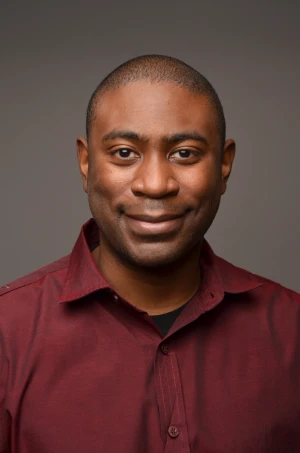Twenty years ago, I stumbled into teaching with the kind of casual confidence only a college student can muster. "If all else fails, I can always be a teacher," I told a classmate during my undergrad years studying life sciences. Not exactly the origin story of someone destined for educational greatness, right?
But here's the thing—somewhere between volunteering at my old high school and finishing my degree, something shifted. I discovered I genuinely loved working with young people, sharing the things that lit me up inside, like science. Teaching went from my backup plan to my calling.
Now, 19 years into this journey, I've learned what most people outside the profession still don't understand: teaching is nothing like the "sweet gig" it's made out to be. And the challenges we're facing? They're getting heavier by the year.
The Reality Behind the Rhetoric
Sure, everyone thinks they know what teaching is about. We all spent years in classrooms, so we fancy ourselves experts on what teachers do. But here's what most people miss: the job has fundamentally changed, and not for the better.
My early years were tough in predictable ways—learning to engage students, keeping up with grading, and managing classroom behaviour. That was exhausting, and it's when many teachers burn out. But I made it through. What I didn't anticipate was how the weight of expectations would keep piling on while the resources to meet them kept shrinking.
Smoke and Mirrors: The Funding Fiction
Let's talk about what's really happening in Ontario schools. Politicians love to brag about "historic" education spending. Former education minister Stephen Lecce and his successors have been especially fond of this talking point. But let's be clear: this is strategic language designed to obscure the truth.
Yes, the raw dollar amount assigned to "education" has increased. But per-pupil funding—the actual investment in each child—hasn't kept pace with inflation over the past decade. Even more deceptive? Recent changes in provincial accounting now count childcare subsidies as "education funding," inflating the numbers while real classroom support disappears.
The human cost of these budget tricks? Fewer adults in schools. Fewer classroom teachers, librarians, educational assistants, guidance counsellors, and social workers. And apparently, the only adults this government is interested in adding to schools are police officers.
When One Person Calls Out Sick, Kids Lose Access to Everything
We're in the middle of what everyone agrees is a youth mental health crisis. Yet schools are chronically understaffed. Class sizes swell, meaning less one-on-one attention for students who desperately need it. When a single staff member takes a sick day, the library might close, or resource rooms providing academic and emotional support become unavailable.
In high schools, students spend their entire lunch periods standing in lines outside guidance offices, waiting to see counsellors who are stretched impossibly thin. They're trying to fix timetable problems that exist because schools can't afford to run courses and programs they used to offer. This is what "doing more with less" actually looks like—and our students are paying the price.
The Work They Never Told Us About
Here's what they don't mention when you're studying to become a teacher: you'll need to spot signs of human trafficking. You'll need to recognize when a student is contemplating self-harm. You'll become the first line of defence against dangers that previous generations either ignored or never faced at this scale.
I came into this profession eager to teach about atoms and astronomy. I never imagined that hours of my professional development would be spent learning to identify abuse, navigate mental health crises, and protect children from threats that have nothing to do with academic content.
And here's the kicker: we were never trained as social workers or mental health professionals. Yet with fewer support staff in schools, these responsibilities increasingly fall on teachers' shoulders.
"Back to Basics" Is Code for Keeping People Powerless
When politicians push "back to basics" rhetoric, it sounds reasonable on the surface. Who doesn't want students to master reading, writing, and arithmetic? But let's decode what this really means: they want citizens who know just enough to vote and pay taxes, and nothing more. It's gatekeeping dressed up as common sense.
Strong public education has always been foundational to equity. Limiting what schools teach and who gets quality education? That's been an oppression tactic throughout history, and it continues today.
The data tells the story: significant disparities in academic outcomes still exist between white students and racialized students, especially Black students. When we address these inequalities—when we affirm student identities and model how to affirm others—that's not "woke indoctrination." That's what equity work actually requires.
Schools Are Microcosms of Society
The world has changed dramatically during my career. Smartphones, social media, AI, a global pandemic—all of these have reshaped the mental and emotional landscape for young people. Schools don't exist in a vacuum. We reflect society, and right now, society is asking us to be everything to everyone.
Every time a policymaker mentions the youth mental health crisis, cellphone addiction, or racial achievement gaps, they're calling on educators to intervene. We're being sent to the front lines of every social battle, expected to solve problems that require systemic change—all while being given fewer resources to do it.
School isn't just about academics. It's a crucial part of every child's support system. What critics dismiss as wasting time on "non-essentials" is actually what it looks like to see students as whole human beings and prepare them to navigate a complex world.
It Takes a Village—But the Village Keeps Shrinking
Society has asked teachers to be the village. But villages require collective investment, and that investment is disappearing. If these were literal battles threatening more visible harm, maybe we'd be willing to adequately fund our defences.
Teachers can't do it all alone. We never could, and we never should have been expected to. The question is: when will the people with power over education budgets and policies start acting like they understand that?
Our students deserve better. And so do the educators fighting to give them a future while working in a system designed to make them fail.

 By
By 


